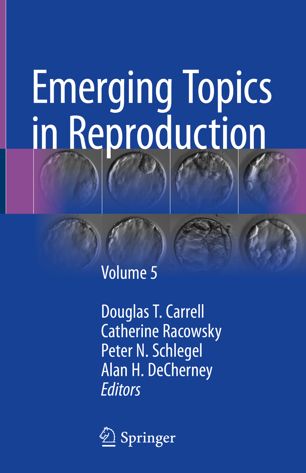

Most ebook files are in PDF format, so you can easily read them using various software such as Foxit Reader or directly on the Google Chrome browser.
Some ebook files are released by publishers in other formats such as .awz, .mobi, .epub, .fb2, etc. You may need to install specific software to read these formats on mobile/PC, such as Calibre.
Please read the tutorial at this link: https://ebookbell.com/faq
We offer FREE conversion to the popular formats you request; however, this may take some time. Therefore, right after payment, please email us, and we will try to provide the service as quickly as possible.
For some exceptional file formats or broken links (if any), please refrain from opening any disputes. Instead, email us first, and we will try to assist within a maximum of 6 hours.
EbookBell Team

4.4
42 reviewsPreviously known as Biennial Review of Infertility,the fifth installment in this seriesbrings together the most current research and clinical evidence on male and female infertility, emerging assisted reproductive technologies (ART) and evolving controversies in reproductive medicine. In this latest volume, parts one and two discuss recent developments in male and female infertility respectively, including fertility preservation in the male adolescent cancer patient, the clinical relevance of sperm RNA, the management of subclinical hypothyroidism, and the effects of endocrine-disrupting chemicals. Part three covers the latest in ART, such as evidence-based morphological approaches for embryo selection and culturing human embryos. The final section highlights controversies in reproductive medicine, including the use of preimplantation genetic screening (PGS) and blastocyst transfer, as well as the ethics surrounding a maximum BMI for IVF.
Providing an ongoing appraisal of current knowledge, and featuring contributions from leading experts in the field, Emerging Topics in Reproduction, Volume 5 is a worthy addition to the series and an ideal resource on the latest topics for reproductive medicine and REI specialists, OB-GYNS, andrologists, and any clinician working with infertility.